Is post-inflammatory hyperpigmentation scarring? Our Toronto team knows this is something many people wonder about. Individuals are often confused and sometimes mistakenly refer to the discoloration on their skin as “acne scars”. Acne scars and hyperpigmentation are not the same thing. Acne is caused when bacteria, oils, and dead skin clog pores. Inflammation can result and may leave depressions in the skin which are true scars. Discolouration with hyperpigmentation or redness may remain after the acne clears but is not real scarring and with time, will usually fade. Although teenagers often experience acne due to hormonal fluctuations, other causes of adult acne are stress, the environment, menstrual cycles, oral contraceptive pills, certain medications, and oil-based products.
- Post-Inflammatory Hyperpigmentation
Post-inflammatory hyperpigmentation (PIH) is a dark discolouration that occurs on the skin after inflammation or after healing of a traumatic wound. These marks are flat and darker than the surrounding skin. The colour can vary depending on your natural skin tone and the depth of the discoloration. This is not true scarring and the good news is that these marks fade over time.
- Acne Scars
A true acne scar may develop when there is either a loss of tissue that causes a depression in the skin or a raised scar because of the overgrowth of collagen. These scars can be skin-toned, red or hyperpigmented. There are different types of acne scars including atrophic or depressed scarring with pits or indentations and hypertrophic or keloid scars – thick raised scars that rise above the skin. These scars can sometimes be itchy or painful.
What’s The Best Treatment for Post-Inflammatory Hyperpigmentation and Acne Scars?
For either of these conditions, treatments should first focus on acne control. PIH usually fades on its own, but this can occur slowly and may take years depending on the skin type. There are topical medications such as retinols, glycolic or azelaic acids and in-office aesthetic treatments if you would like the pigment to fade more quickly. Chemical peels, laser treatments, microneedling, and microdermabrasion are beneficial for fading PIH.
Atrophic scars are typically treated with chemical peels, trichloroacetic acid, subcision, dermabrasion, laser treatments, microneedling and dermal fillers. Treatments for hypertrophic and keloid scars can often involve laser therapy and steroid injections.
Is post-inflammatory hyperpigmentation true scarring? Our Toronto-based Gidon Aesthetics & MediSpa team can explain more about acne scars or dark spots from acne and how to prevent or treat them. Call us at 416-483-4541 or submit a contact form to request a consultation.




